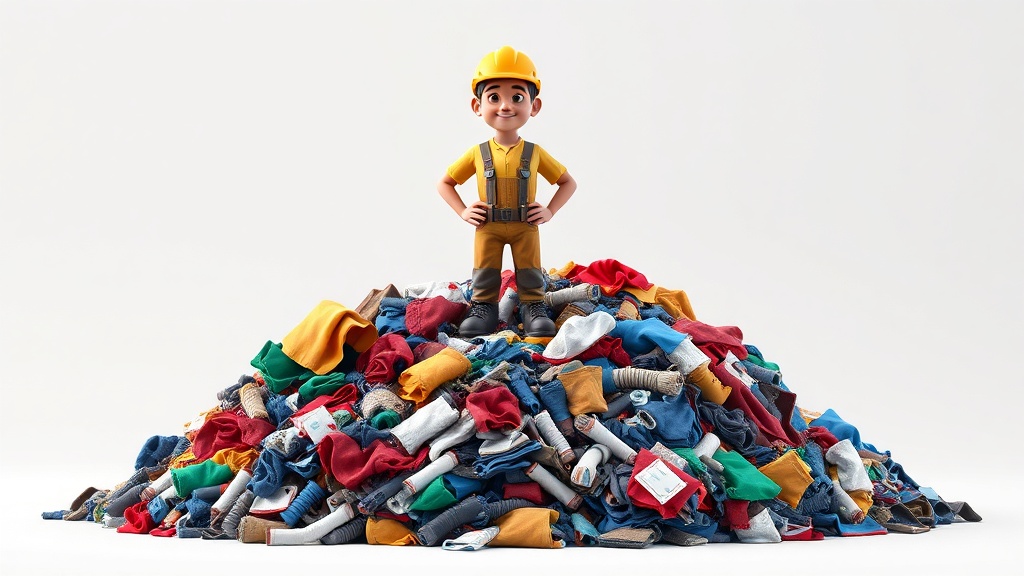Home / Environment / Panipat's Toxic Textile Recycling Leaves Workers Gasping for Breath
Panipat's Toxic Textile Recycling Leaves Workers Gasping for Breath
7 Oct
Summary
- Panipat recycles 1 million tonnes of textile waste annually, exposing workers to harmful microfibers
- Lung diseases, skin conditions, and cancer cases are surging in the city due to poor working conditions
- Untreated industrial wastewater contaminates local water sources, causing widespread health issues

As of October 2025, Panipat, India, has emerged as a global hub for textile recycling, processing an estimated 1 million tonnes of discarded clothing annually. However, this booming industry is coming at a heavy cost to the health of its workers and the surrounding community.
Inside the recycling factories, workers like 27-year-old Neerma Devi are exposed to a constant cloud of lint and microfibers, which can severely damage their lungs. Many workers, including Devi's father-in-law, have developed chronic obstructive pulmonary disease (COPD) and other respiratory issues after years of exposure. Doctors warn that the long-term inhalation of these materials poses serious risks, potentially contributing to asthma, fibrosis, and even cancer.
The environmental impact of Panipat's textile industry is also alarming. Hundreds of illegal dyeing and bleaching units discharge untreated wastewater directly into local waterways, contaminating the groundwater and surface water with heavy metals and other toxins. Residents in nearby villages report widespread skin conditions, and in some cases, cancer, which they believe is linked to the polluted water.
Despite efforts by authorities to crack down on illegal operations and enforce environmental regulations, the damage to Panipat's workers and communities continues. Factory owners often ignore safety protocols, and enforcement remains inconsistent, allowing the cycle of pollution and health hazards to persist. As the global demand for textile recycling grows, the true cost of this industry is etched into the bodies of those who power it.




